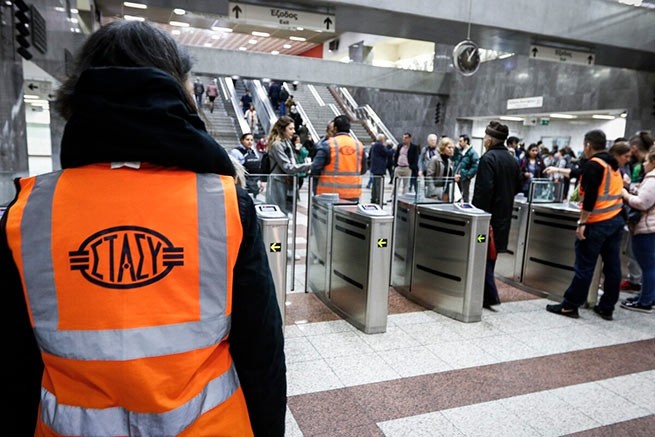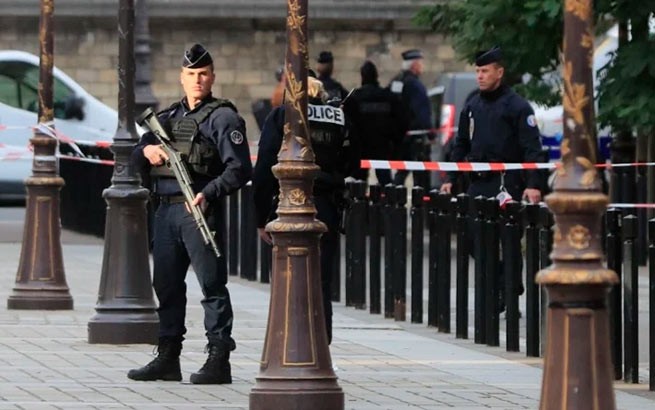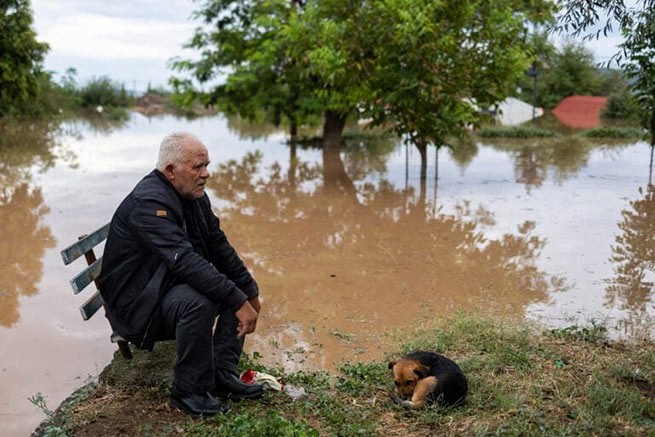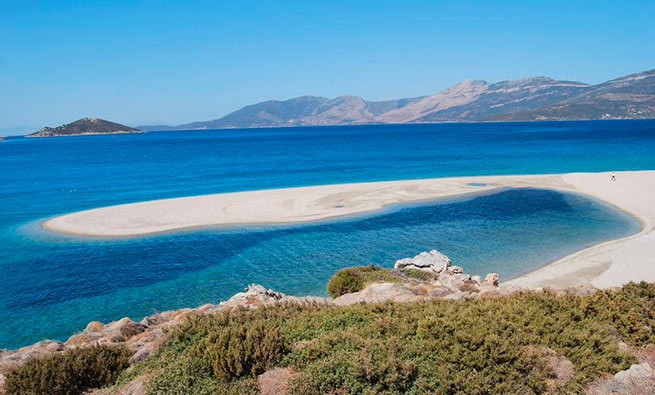The millions of refugees and migrants welcomed by Germany have changed the news. Increasingly, they began to contain dark news that residents of a previously safe country associate with migrant politics. And Germany is not alone in this.
Part of European society sincerely sympathizes with people who are forced to leave their homeland and, often with young children, go into the unknown. Others consider them to be the main reason for the worsening crime and economic situation. At the mention of refugees from Africa and the Middle East, most people have unpleasant associations: robberies, terrorist attacks, rape, exorbitant government spending on benefits for migrants.
In Germany, the refugee problem is especially urgent due to their number – millions of them entered through the country’s open borders in 2015. The situation was aggravated by the pandemic – without proper control, many migrants simply disappeared from the field of view of the relevant authorities. According to The Guardian and Lost in Europe journalists, more than 18,000 migrants, adolescents and children have disappeared without a trace in the European Union in 3 years. Including in Germany – more than 700 people.
It is no secret that not all migrants come to Europe with good intentions – to legalize, get a job and earn a decent life for their family (often it is not small at all, and has the ability to actively grow).
Many of the newcomers initially expect to earn money in a criminal way – thefts and robberies, drug trafficking and human trafficking. Therefore, the invasion of such a number of potentially dangerous “guests” caused a natural reaction of the society in such a situation. Fears of German residents intensified after the attacks on women in Cologne and other regions of the country, the Christmas terrorist attack in 2016 in Berlin, which killed 12 people and forever changed the fate of their loved ones and survivors. One of them, Klosters, recalls:
I still remember this terrible evening with a shudder – its events constantly pop up in my memory. It was about eight o’clock, it had long been dark, but the market lit with Christmas lights created a festive mood. I remember how I stopped in front of a hot wine booth and called my mother to ask where she was, but instead of answering I heard the roar of an engine, some kind of roar and shouts of passers-by. A moment later, I felt a sharp pain after a monstrous blow and for a while I lost the sense of reality. I remember how the police and an ambulance arrived, how people shouted about the terrorist attack and about the truck hitting the crowd.
I could not get up on my own, and the doctors took me to the hospital on a stretcher. There I hoped to meet my mother, but she was nowhere to be found. She did not appear even after a few hours. I was informed about her death the next day – she was one of the first to be under the wheels, and the injuries became fatal for her. I still cannot fully believe that she left, and a part of me also irrevocably died with her. Several years passed before I learned to walk again independently without crutches, but the pain of loss is stronger than any physical injury.
It is doubly disappointing that the attacker became one of the many people whom the country accepted and helped in difficult times. The payment for our hospitality was bloody. It’s no secret that along with thousands of people fleeing the horrors of war and hunger, hundreds of people with a criminal past arrive in Germany, who not only have no respect for our culture and our way of life, but also openly hate us. This hatred is very dangerous for German society and could lead to even more destruction in the future.
The government urgently needs to review its migration policy and, if not reduce the number of asylum seekers accepted by the state, then carefully check their biography and, at least for this time, not allow them to move freely throughout Germany. At the moment, there is absolutely no mechanism to check the mental health of asylum seekers and restrict their movement. This means that anyone can come to us from Africa or the Middle East, impersonate anyone and freely roam around German cities and villages. This is completely unacceptable for a country where people think a little about their safety.
Munich resident Peter, a dog breeder, speaks of another problem caused by the migrant invasion:
In relation to Africans and Arabs, you should not use the word “refugee” at all – it is out of place here. It is correct to call these people “economic migrants”, their goals and relations are no different from those who come from the east of the European Union. These mostly young and strong people look to Germany and Austria as an opportunity to easily enrich themselves at the expense of our taxpayers, in which they are assisted by the current federal government and officials in Brussels. Already, newcomers have more rights than native Germans. They may not work for years, receive a quality education, a decent financial allowance, and even take an active part in the political life of a country that is foreign to them. At the same time, everything is never enough for them, and they are ready to criticize our country for insufficient observance of their rights and forcing them to integrate. The current situation must be changed immediately, otherwise we will face an inevitable catastrophe.
Against the migration policy of the government and businessman Hermann from the village of Vengern near Stuttgart. He is sure that the current situation is destroying German society, because under the guise of refugees, criminals of all stripes and terrorists often move to Germany:
Bedouins in the desert, tribes in the jungle and Eskimos in the Arctic, fishermen in the southern seas and hunters for fur animals in the taiga have lived in extreme conditions for generations, but they do not even think to leave their native lands. Germany should completely rethink its foreign policy and focus only on domestic problems.
Look at what the migration policy has led in the last five years: in our country, several dozen criminal cases on terrorism have been initiated, recruiters of the Islamic State (IS, a terrorist organization), war criminals who fled from justice, and others sit in the docks in regional courts. extremists who hate us and our country with all their hearts.
German politicians are wrong when they think that the demographic hole can be filled with refugees or residents of the poor countries of the European Union. The current crisis must be resolved by the Germans themselves: for this it is necessary to work harder, build strong families and give birth to children, behind whom is the only possible future of our country.
Undoubtedly, not all refugees who resettled in Europe behave in this way. There are many examples of migrants successfully integrating and working for the good of the country. For example, Musa, an immigrant from Tunisia, came to Germany back in 2011. Here he was educated and became a successful mechatronic engineer while living in Cologne. He tells:
I did not think about moving to a foreign country, but after the 2010-2011 revolution in Tunisia (Arab spring), chaos reigned for a while, it became dangerous to walk the streets, there was no work. I owe the move to Germany to my father, who spent all his savings to help me, a 19-year-old boy, get to Europe by sea. To be honest, at first I wanted to go to France, since my French was good at school, but my acquaintances in the camp persuaded me to move north, and I did not regret it. Instead of a tent camp, without running water and sewerage, we were accommodated in a dormitory, two people per room, instead of hot meals, a small allowance appeared, with which everyone could buy for themselves whatever they liked.
My studies were going well: in a year and a half, while my application for permanent resident status was being considered, I learned German and was able to enter night school for secondary education. At the end of 2013, I had the right to work and receive a salary, for which I began to rent an apartment and applied for reunification with my wife, son and parents, who all this time remained in Tunisia. My request was considered for a little over a year, after which I was able to buy a ticket to Frankfurt for my wife and child. The parents were not allowed to enter, and now they themselves do not want to migrate anywhere from Tunisia.
I consider myself a full-fledged member of the German society, which has lent a helping hand at a difficult time for me and my family. A decade later, with a German higher education and a prestigious job as a mechatronic engineer behind me, I feel needed in my second homeland and think with horror of thousands of people forced to live during wars, hunger and unemployment without a chance to change their lives and the lives of loved ones for the better. side. Germans are a progressive nation, because, unlike other nations, they do not divide people into their own and others by skin color, religion or creed.
However, human rights activist Wolf Seerne states that not all migrants are as lucky as Musa. Many asylum seekers find themselves in dire conditions:
The current situation with refugees is a shame for the European Union. Brussels should pay more attention to this problem and provide people arriving in our country with decent living conditions. It is necessary to start with the elimination of tent camps for refugees in which unsanitary conditions prevail, degrading human dignity, as well as forcing the countries of the Mediterranean region to organize rescue patrols off the coast of Africa. After that, asylum seekers need to be provided with shelter and work in the territory of one of the EU countries. Critics of my position often forget that not a single person leaves his country voluntarily and suffers many hardships in the struggle for a better future.
Entrepreneur Marlies from Dusseldorf argues that with a competent migration policy, it is not at all difficult to avoid crimes on the part of newcomers:
Undoubtedly, residents of regions suffering from natural disasters, revolutions and military conflicts need to be helped. However, it is necessary to help the victims in their own countries. Accommodation of refugees in numerous tent camps away from their homes generates corruption of officials of host countries and does not contribute to solving existing problems.
Lena, a successful Russian-speaking hairdresser from Berlin, expressed her opinion. At one time, she herself was not in the best position after immigration, so she sympathizes with refugees. But at the same time, he fears an increase in crime:
As the mother of a teenage girl, my primary concern is for her safety. Women in Germany are increasingly attacked by immigrants from Africa and Asia, and many cases of harassment and rape remain unsolved. Many of my acquaintances are frightened by the possibility of repeating the story of the kidnapping of the girl Lisa, which has not been fully investigated by the Berlin police – I do not wish such a fate for my child.
It is interesting that several centuries ago the Germans themselves willingly left for other countries, but now the situation has changed to the opposite: Germany is the second most attractive country for migrants after the United States. A dream come true for millions of potential settlers around the world. According to the Federal Statistical Office, approximately 21.2 million people in Germany, or 25% of the population, have foreign roots. About 11.2 million are not citizens of the Federal Republic of Germany.
It is unlikely that a split in society and the issue of accepting migrants will become a priority in the upcoming presidential elections, but it is quite capable of spoiling the blood of candidates. For example, according to the rating of Armin Lashet, nominated by the CDU / CSU and who previously supported Merkel in her decision to open Germany’s doors to refugees, his position could be hard hit. The number of supporters of the migration course of the federal government continues to decline and may lead to the loss of a significant part of the electorate of the conservative bloc of the Christian Democratic Union and Christian Social Union.
And the right-wing Alternative for Germany (AfD) party, which views Islam as a threat to German traditions and culture, rose sharply in the ratings and managed to break into parliament amid the migration crisis. Although now she is gradually losing support, she is now attracting ardent opponents of lockdowns and quarantines to her side.
However, whoever becomes the head of government will have to balance between the sympathies of the indigenous electorate and the votes of naturalized migrants, whose political weight is growing every year. Surely Berlin will revise the quotas for accepting asylum seekers and, quite possibly, will tighten their conditions of stay in the country. After all, the refugee crisis, which has created a split in society, will not go away so easily.






More Stories
4 scenarios for the development of the war in Ukraine
There was a scandal in Cyprus over the Prime Minister's plane, donated by K. Mitsotakis
Nuclear wrestling between the USA and Russia: are we heading towards the use of strategic weapons?